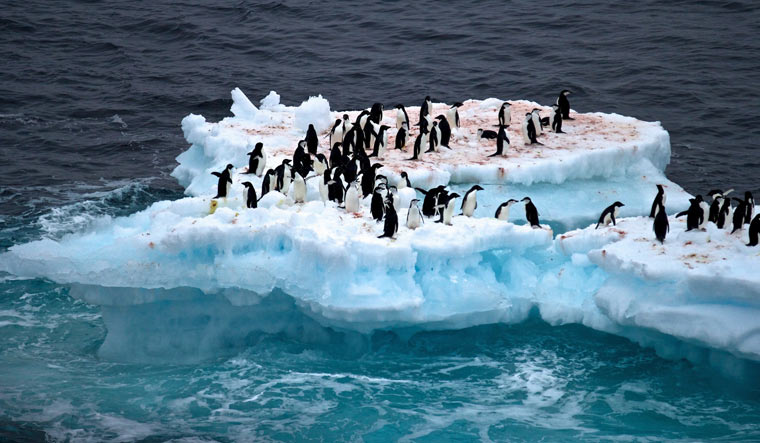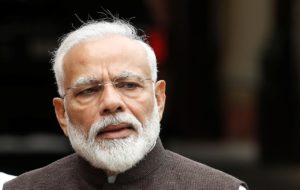Climate Action Can’t Wait For Covid Pandemic To End

Climate change is the biggest threat to Antarctica's unique plant and animal species. Limiting global warming is the most effective way to secure their future
World leaders need to take immediate action to limit climate change, restore biodiversity, and protect health, according to an editorial published in over 220 leading journals, including The Lancet and the National Medical Journal of India.
The editorial is being published ahead of the UN General Assembly, one of the last international meetings taking place before the COP26 climate conference in Glasgow, UK in November.
It warns that the greatest threat to global public health into the future is the continued failure of world leaders to take adequate action to keep the global temperature rise below 1.5 degrees Celsius and to restore nature.
“The recent examples of extreme weather all over the globe have brought into focus the reality that climate change is,” said Peush Sahni, Editor-in-Chief of the National Medical Journal of India, and one of the co-authors of the editorial.
“We must act now lest it is too late. We owe it to the future generations,” Sahni said.
The authors warn that while recent targets to reduce emissions and conserve nature are welcome, they are not enough and are yet to be matched with credible short and longer term plans.
They urge governments to intervene to transform societies and economies, for example, by supporting the redesign of transport systems, cities, production and distribution of food, markets for financial investments, and health systems.
Richard Horton, Editor-in-Chief of The Lancet, said urgently addressing the climate crisis is one of the greatest opportunities for advancing the well-being of people worldwide.
“The health community must do more to raise its critical voice in holding political leaders accountable for their actions to keep global temperature rises below 1.5 degrees Celsius,” Horton explained.
The editorial argues that sufficient global action can only be achieved if high-income countries do far more to support the rest of the world and to reduce their own consumption.
Developed countries must commit to increasing climate finance: fulfilling their outstanding commitment to provide USD 100 billion a year, have a dual focus on mitigation and adaptation, including improving the resilience of health systems, it said.
The editorial argues that this money should be provided in the form of grants, rather than loans, and should come alongside forgiving large debts, which constrain the agency of so many low-income countries.
Additional funding must be marshalled to compensate for inevitable loss and damage caused by the consequences of the environmental crisis, the authors noted.
“While low and middle income countries have historically contributed less to climate change, they bear an inordinate burden of the adverse effects, including on health,” said Professor Lukoye Atwoli, Editor-in-Chief of the East Africa Medical Journal, and one of the co-authors of the editorial.
“We therefore call for equitable contributions whereby the world’s wealthier countries do more to offset the impact of their actions on the climate, beginning now, and continuing into the future,” Atwoli said.
Fiona Godlee, Editor-in-Chief of The BMJ, and one of the co-authors of the editorial, noted that going above the mean temperature of 1.5 degrees Celsius and allowing the continued destruction of nature will bring far deadlier crisis than COVID-19.
“Wealthier nations must act faster and do more to support those countries already suffering under higher temperatures. 2021 has to be the year the world changes course — our health depends on it,” said Godlee.
According to Eric J. Rubin, Editor-in-Chief of The New England Journal of Medicine, and one of the co-authors of the editorial, the environment and health are inextricably intertwined.
“The changing climate is endangering us in many ways, including its critical impacts on health and health care delivery,” said Rubin.
“As medical and public health practitioners, we have an obligation not only to anticipate new health care needs but also to be active participants in limiting the causes of the climate crisis,” the added. (PTI)





